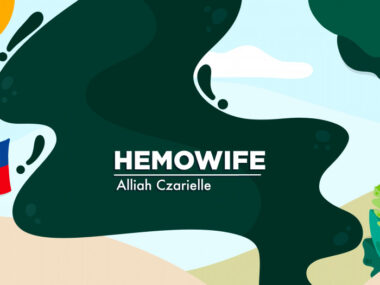When I’m hyperfocused and need to ‘help,’ I lean on mindfulness
Because I'm neurodivergent, my need to 'help' is really a need for dopamine
Written by |

As someone with attention-deficit/hyperactivity disorder, I crave a challenge. It doesn’t even have to be a significant one, just something that gives me a little feeling of accomplishment. A small win early in the day, such as solving a tricky problem, tidying a corner of my space, or crafting a compelling sentence, gives me the dopamine I need to start moving. Without that jolt, I feel like a slab of butter in the midday heat melting into my bed.
Looking back, I sometimes wonder if this neurodivergence is part of the reason my husband, Jared, and I connected so deeply in the first place. His body is “different” — he has hemophilia B and epilepsy — and my brain is wired differently. While our challenges don’t look the same on paper, they’ve shaped how we see the world. We both know what it’s like to feel misunderstood — to have people make assumptions about our capabilities, or to be spoken over by those who think they know better. There’s a certain shorthand we share, built not just on love, but on lived experience.
Am I helping or hovering?
These days, I try to be mindful about the language I use. With Jared, I don’t refer to myself as a “caregiver,” as it doesn’t fit the shape of our marriage. He strives to live on his own terms, and our relationship is one of equals, not patient and nurse.
Still, I’ve caught myself slipping into fix-it mode by offering help before it’s asked for, suggesting alternatives when he’s already found a way that works for him, and gently hovering when I should probably just … back off.
It doesn’t help that my brain — always scanning for urgency — sometimes miscalculates risk. Something minor can feel like a looming emergency, especially when I’m tired or overstimulated. And when someone with perceived “authority” expresses concern — a doctor, a relative, or even a well-meaning stranger — I can internalize their fear and overreact. That’s not because I don’t trust Jared, but rather because my ADHD brain latches onto urgency before it pauses to assess reality.
Mindfulness and microshifts
One major tool I’ve found helpful is mindfulness, or just being aware of my thoughts, my actions, and how much space I’m taking up. When I notice that my need to “help” is really a need for dopamine, I pause. I ask myself: “Is Jared asking for support — or am I jumping in to soothe my own nerves?”
Self-awareness doesn’t always come naturally to neurodivergent people — especially when we’re in hyperfocus mode. But it can be cultivated. Mindfulness practices — even informal ones, like journaling or taking a walk to regroup — can create enough distance to interrupt unhelpful loops before they create friction.
Another tip if you’re like me? Get your own distraction. I say this with love. Pour your brain into something that stimulates you, outside of the person you care for. It can be a creative project, a side hustle, or even a good puzzle — anything that satisfies the urge to “solve things” without hijacking someone else’s independence.
Hyperfocus isn’t inherently bad. In fact, it’s one of our greatest strengths. But like any strength, it needs intention and redirection. Especially in relationships where the goal is to lift someone up — not unintentionally cast a shadow.
Note: Hemophilia News Today is strictly a news and information website about the disease. It does not provide medical advice, diagnosis, or treatment. This content is not intended to be a substitute for professional medical advice, diagnosis, or treatment. Always seek the advice of your physician or another qualified health provider with any questions you may have regarding a medical condition. Never disregard professional medical advice or delay in seeking it because of something you have read on this website. The opinions expressed in this column are not those of Hemophilia News Today or its parent company, Bionews, and are intended to spark discussion about issues pertaining to hemophilia.


Leave a comment
Fill in the required fields to post. Your email address will not be published.